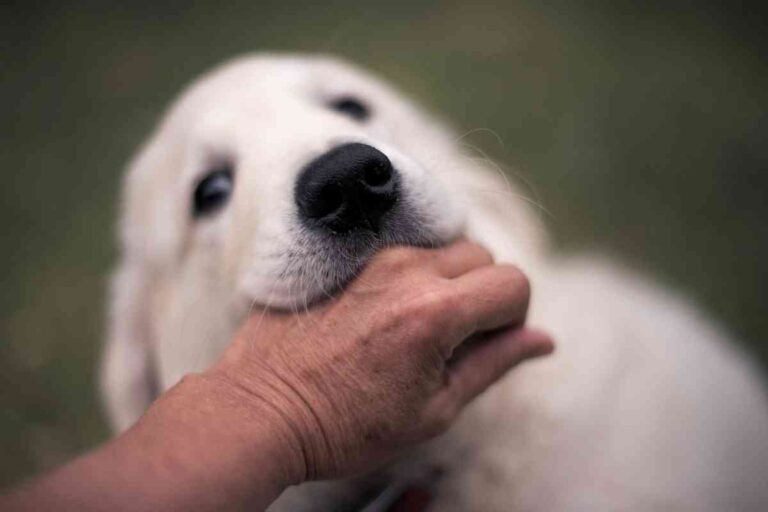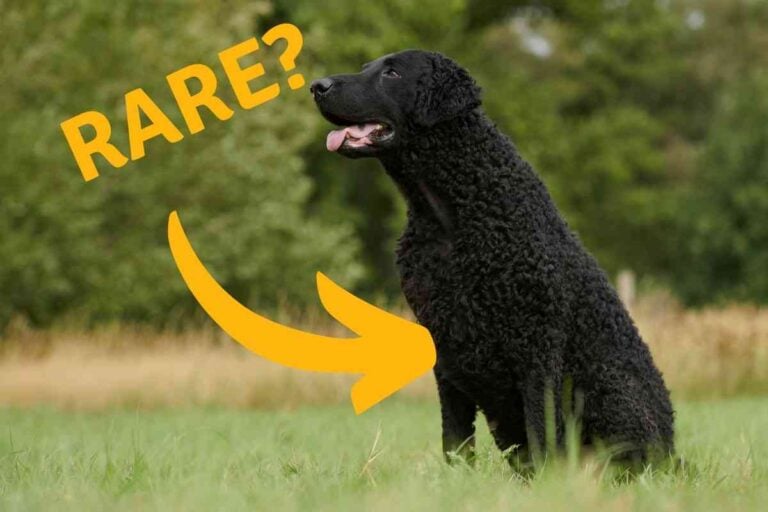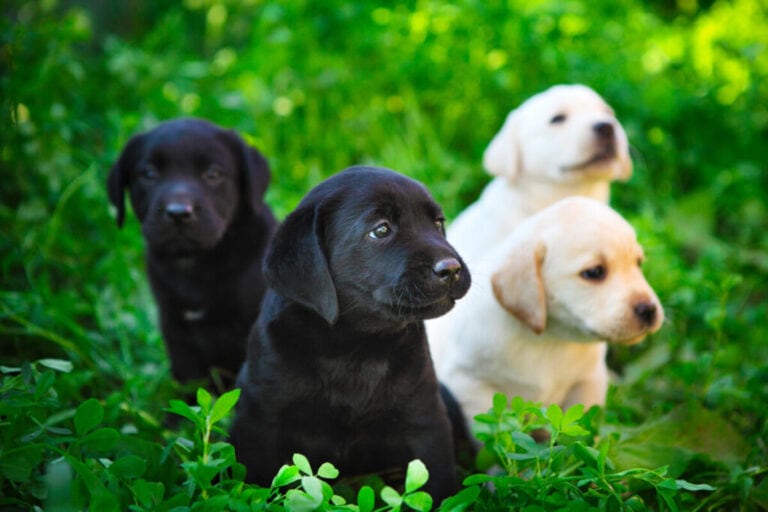Are Chesapeake Bay Retrievers Protective?
If you are looking for a new dog, you might be wondering what breed to get or what breed will be best for your family.
Some families prefer a protective dog because it means you always have a watchdog looking out for your loved ones.
Other people are concerned about owning a protective dog because it sometimes means they could become aggressive with strangers.
Are Chessies Protective?
Chessies can be very protective. It’s in their nature and you will find it hard to take the protectiveness out of the Chessie. However, they are not usually aggressive, and their protective nature rarely turns into being aggressive. You need to train them well though to make sure they do not become aggressive or create bad habits.
We will go over how Chessies are protective in this article and how it can be a benefit to your family if you are looking for a dog that will always watch over you and make sure you are safe.
We will also cover some training tips to make sure your dog does not become aggressive.
Are Chesapeake Bay Dogs Protective?
Yes, Chessies tend to be protective over their owners and the families that they live with.
They will be suspicious when you have strangers in the house, and they are often not prone to greeting people they don’t know with enthusiasm.
Since Chessies already have their natural protective nature, you need to make sure you are not encouraging them to become aggressive, even if you think it’s just in a playful or fun manner.
Chessies also need proper training to make sure they never become aggressive.
With the right training though and the right behavioral management, you will never have to worry about your dog becoming aggressive.
Chessies will also mark their territory and let strangers know when they don’t want people around.
This usually comes in the form of just being hostile or quiet.
Properly trained Chessies will never lash out or bite people even when they come into their territory unwelcome.
What Kind of Personalities Do Chessies Have?

Here is a breakdown of Chessies and their personality traits so that you can aware of them before deciding on whether to get one or not.
Serious
Other than being protective, Chessies are also very serious.
They were bred to work hard and they will always thrive more when they are working or when you give them a mission or task to do.
This means you need to make sure you are spending at least 20 minutes a day with them working or giving them mental tasks to keep them busy.
Chessies always need to have tasks both mentally and physically or they will not be able to do what they were bred to do and this can cause behavioral issues.
Chessies that are not given physical and mental tasks will start acting out and might even display destructive behaviors like chewing or destroying things around the house.
Chessies also love water and they were bred to swim, so you can always take them swimming if you have a place available for them.
If you take them swimming, they often need less physical stimulation than if you only took them for a walk or a dog.
Swimming is considered the best exercise for a Chessie.
Sensitive
Chessies are very loyal to their owners, and they often know when you are in a bad mood or experiencing a trauma.
This can cause them to be extra sensitive to your issues and they will want to be around you when you are hurting.
Their sensitive nature can also make them sensitive to your commands and behaviors though.
Chessies that are overtrained or yelled at often can shut down emotionally and will not want to be around you.
Make sure you are doing proper obedience training and never yell or hit your dog as this can cause them to be afraid of you.
Chessies can also be stubborn during training.
Make sure you are showing them who is boss so that they know stubborn and ill behavior will not be tolerated.
The sooner you start training the dog, the better.
If you start when they are still young puppies, they will listen better and will be more willing to please you.
Older Chessies can already be stuck in their habits, and this can make it harder to train them.
If you are having trouble training your puppy on your own, you might want to consider getting a professional trainer to help you.
Loyal
Chessies are loyal to their owners and they want to stick by your side.
If you want them to participate in a certain activity with you such as hiking or jogging, they will want to learn the activity well so that they can please you.
They might also want to go with you everywhere since they trust you and they will want to show their loyalty.
Chessies do like to spend time alone, but they usually want to be with you and have attention.
Make sure you are giving them enough attention and including them in family activities so that they know they are loved.
Unique
Chessies are very unique as they are the result of cross-breeding between Newfoundlands, hounds, water spaniels, and setters.
This gives many different breeding purposes and a unique personality compared to other dogs of similar breeds.
They are working dogs and they love hunting, swimming, and having other tasks.
They also love mental activities and they want to be in on the action all the time.
Are Chessies Aggressive?
Chessies can become aggressive in some situations, especially if they are provoked or they are not trained well.
In general, though, Chessies are not aggressive dogs and they will remain calm in any situation.
Since Chessies tend to be bossy though and they want to be in control, the owner has to show them that they are the boss and the Chessie needs to respect them.
If the Chessie is not trained to respect you, they will be bossy which can sometimes turn into aggression.
You will notice that Chessies will usually not pay attention to new people or strangers in your house as they are protective and are not very welcoming.
However, they will not be aggressive.
They will just stick to themselves and be in their own territory until the guest leaves.
The only time a Chessie might be aggressive is if they see someone hurting you or wanting to be mean to you.
This might cause them to lash out to protect you or save you from harm.
Are Chesapeakes Good Guard Dogs?
Chessies will bark when necessary.
This means they will bark when someone is at the door or when they hear movement or activity in the house that is unusual.
They are good at alerting you when there is danger in the home or on your property.
Chessies are also protective of you and your property.
A Chessie will know their own home and they will know when someone unwelcome or uninvited is around.
This makes them great watchdogs because they will let you know when there are new people around.
Make sure you always go to check what they are barking at because Chessies only bark when prompted. They don’t usually bark at random dogs or things in the street.
They only bark when they sense danger and when they want to warn you about something.
Are Chessies Hard to Train?
Since you read about how Chessies can be bossy and how they can be aggressive when not trained properly, you might be wondering if they are hard to train.
In general, Chessies are not hard to train because they have an even-tempered personality and they will easier to bond with you and prove their loyalty.
The sooner you start training them though, the better.
If you want until they have their own habits, it will be hard to break them and it will be hard to keep them in line.
When Chessies are puppies, they are much more willing to listen to you and they will be able to pick up tricks and habits from you.
Chessies also like to have a job and you can treat training them as a job.
You can give them mental agility courses or constantly give them new tricks to learn so they can feel like they are working.
This will make the training process much easier for them and it will also increase bonding experiences between you two.
Final Thoughts
Chessies are a protective dog breed because they are loyal to their owners and families.
They are also sensitive to your needs and they will want to make sure you are safe and protected.
Since they have a naturally protective nature, they can also become aggressive when someone wants to hurt you or when there are unwelcome people on the property.
This also makes them excellent guard dogs.






